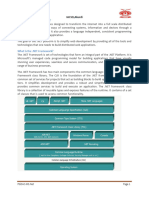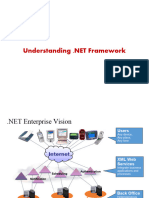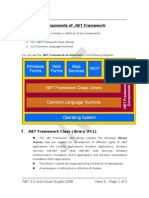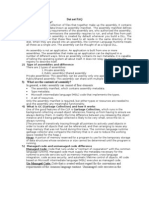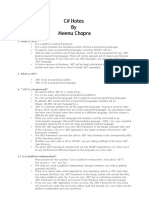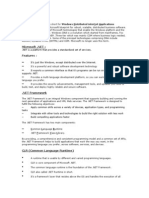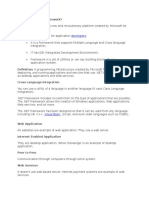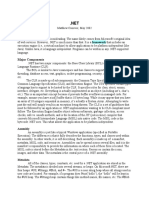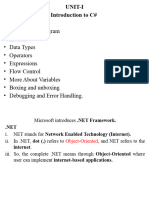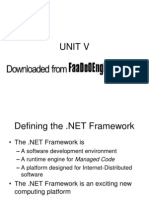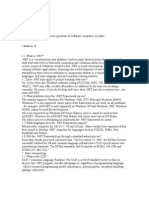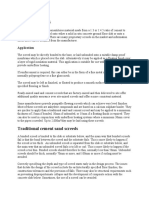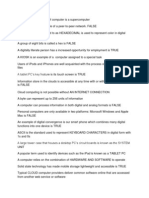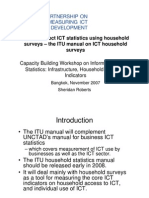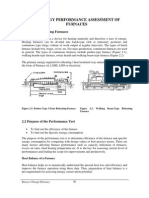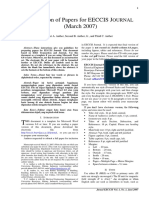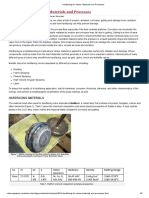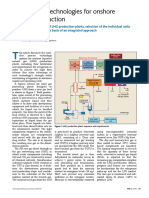100% found this document useful (1 vote)
370 views9 pages01 - The .NET Framework - Color
The document discusses the .NET platform and framework. It describes the benefits of the .NET framework including being based on internet protocols and standards, unified programming models across languages, ease for developers, and an extensible architecture. It also provides details on creating .NET assemblies, the assembly manifest, and how managed code is executed by the common language runtime (CLR).
Uploaded by
DorCopyright
© © All Rights Reserved
We take content rights seriously. If you suspect this is your content, claim it here.
Available Formats
Download as PDF, TXT or read online on Scribd
100% found this document useful (1 vote)
370 views9 pages01 - The .NET Framework - Color
The document discusses the .NET platform and framework. It describes the benefits of the .NET framework including being based on internet protocols and standards, unified programming models across languages, ease for developers, and an extensible architecture. It also provides details on creating .NET assemblies, the assembly manifest, and how managed code is executed by the common language runtime (CLR).
Uploaded by
DorCopyright
© © All Rights Reserved
We take content rights seriously. If you suspect this is your content, claim it here.
Available Formats
Download as PDF, TXT or read online on Scribd
/ 9




